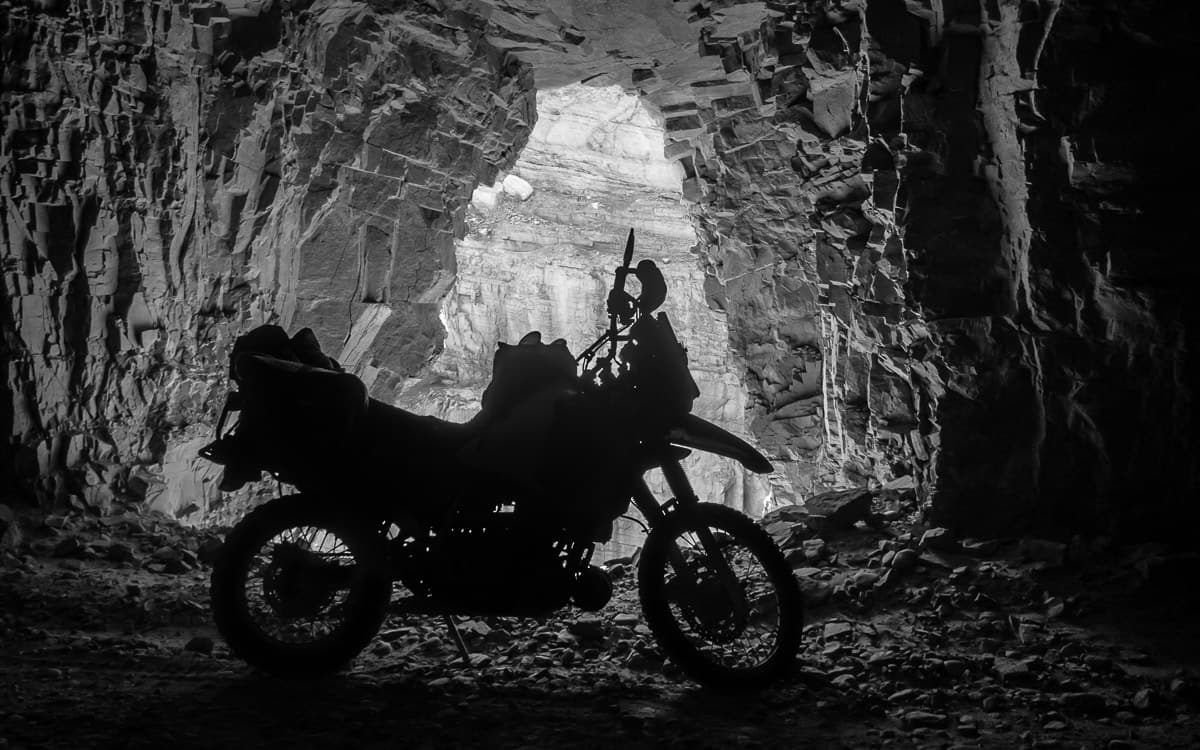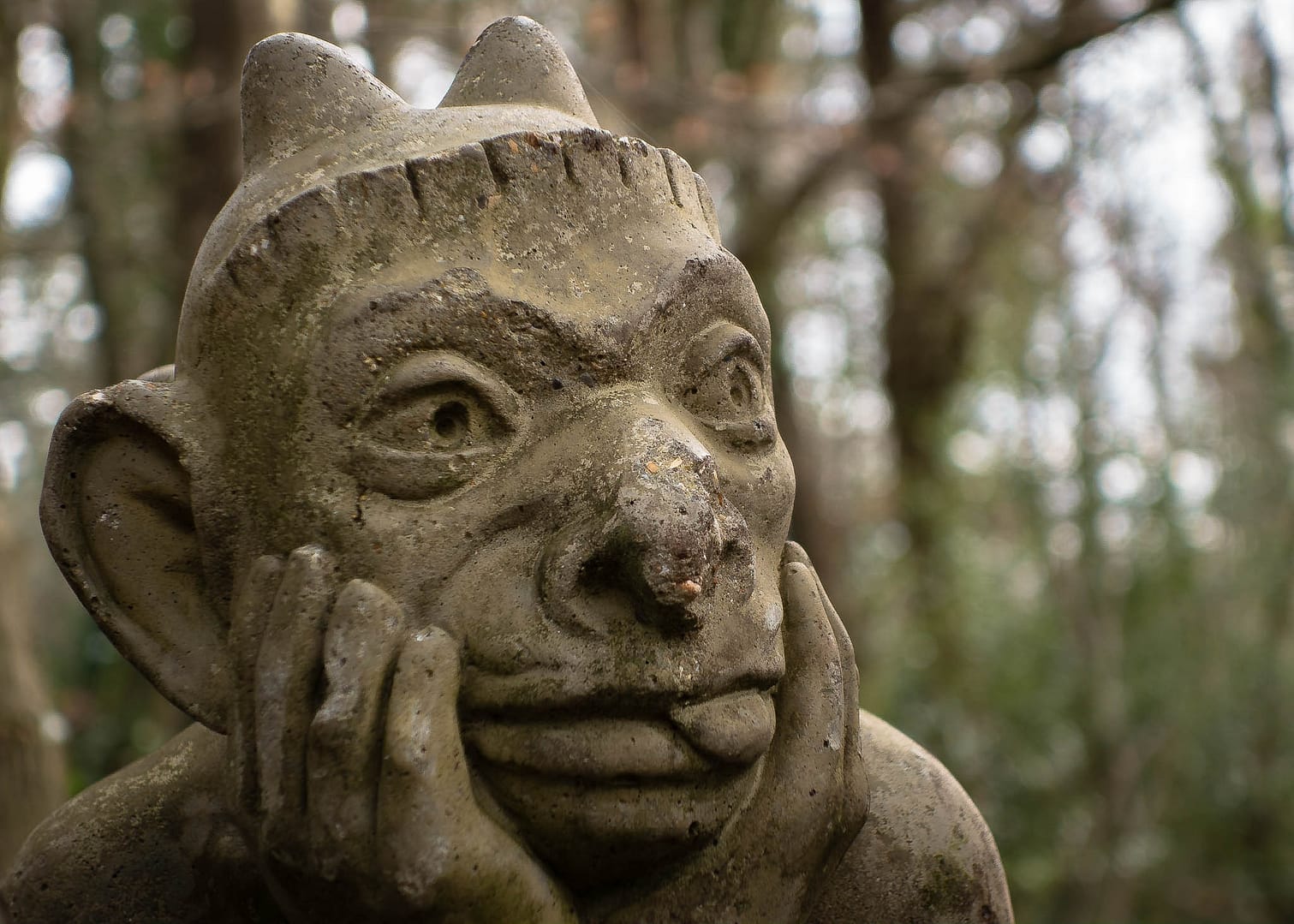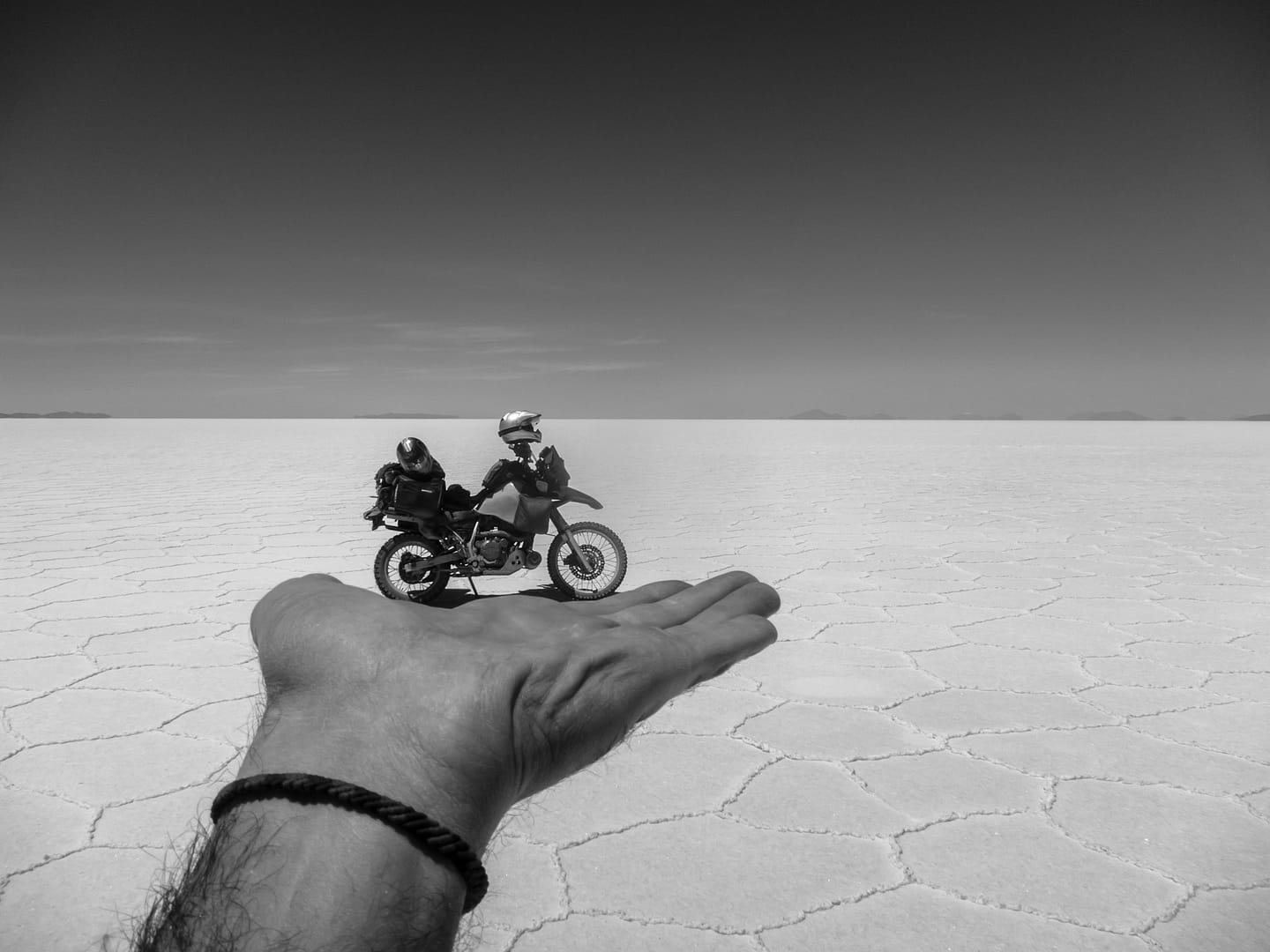Travel will push you beyond all limits.
Travel isn’t always pretty and comfortable. Some days it hurts. Some days it pushes you far beyond your limits. Some days it leaves you shattered and broken. Those days leave an indelible mark on your memory, on your heart and on your body. On such days each traveler has a simple choice to be made: Continue the adventure or go home. Those that go home are to be honored for they survived the trials with glory and honor. Yet for those that continue, it is because of days like these, not in spite of them….
Sucre, Bolivia
I need to stick with nice safe activities. Like riding motorcycles, walking alone in Rio de Janeiro at night in a bad neighborhood or skydiving. But climbing stairs? Clearly they should be avoided!
Climbing up the stairs in my hostel I slip, land badly and break a bone in my foot. Yes, for the record, I have the glorious tale of injuring myself by climbing up the stairs! I think in the future I’ll describe the injury in more dramatic terms: “I was being chased by a pack of rabid llamas and had to jump off a cliff to get away. Luckily there was a lake at the bottom of the cliff but unfortunately it was not quite deep enough and I broke a bone in my foot when I landed. Wet, alone and in pain, I had to improvise a splint so I could walk out 10 km and get help.” Yep, that is my story and I’m sticking to it!
Back in the real world, I found Bolivia has some very good doctors. I not only broke the bone but had to have surgery to screw the bone together. I’m not certain I would trust them for anything major but a broken bone? I am quite happy with the result. Yet where Bolivian health care fails is everything surrounding the surgery.
It starts with the food. A good meal would, one might think, be important to recovery. But in 3 meals at the hospital (Dinner, Breakfast, Lunch) I received food barely sufficient for one meal. On top of that I had fasted for about 18 hours before the surgery (8 hours required, but I had not eaten since the night before). So in total I had the equivalent of one meal in 48 hours with no option to get more. If I were thinking straight I would have asked friends to bring over more food.
Then add in the temperature. Sucre in winter has cold nights and hot days with no humidity which makes it an almost perfect climate to me. Except that this hospital is always cold and never seems to receive the warmth of the sun. A space heater and a thick wool blanket barely keep me comfortable but I never truly feel warm.
There is of course pain and discomfort. The pain medication at the hospital is good and in truth there should not be a lot of pain after this surgery anyways, but there is nonetheless a lot of discomfort from stitches, swelling, laying in bed for hours, and the bit of pain that comes through the medication. All of this is expected but must be kept in mind to truly understand the extent of the trails of surviving Bolivian Health Care.
At this point I am starving, tired, cold and uncomfortable. I am having difficulty understanding Spanish and am finding it increasingly difficult to speak in Spanish. My considerable reserves of patience, energy and good will have been depleted far beyond anything I have experienced in my life. I am holding together and attempting to find solutions to problems through sheer force of willpower because I have no other choice. It is here that the fun begins…..
Doctor: You cannot walk for a month. You need crutches.
Me: Ok, please give me crutches.
Doctor: We do not have crutches, you need to go buy them.
Me: Can I walk on the foot until I buy crutches?
Doctor: No, you cannot walk on that foot for a month, you must have crutches!
Me: How do I get crutches?
Doctor: You must go buy crutches!
Or another conversation centered around money and phone calls:
Nurse: You owe 1200 Bolivianos for the room before you can check out!
Me: I can pay with a credit card.
Nurse: We do not accept credit cards. Please pay with cash.
Me: I only have 900 Bolivianos. I need to call a friend to get more money.
Nurse: Yes, please call your friend. If you do not pay now, you will owe 200 Bolivianos more.
Me: I do not have a phone, please let me use your phone so I can get more money.
Nurse: We do not have phones, please call a friend.
Me: I do not have a phone, I cannot call anyone. Do you please have a phone I can use?
Nurse: We do not have phones. If you give me 10 Bolivianos I will buy credit for your cell phone.
Me: I just said, I do not have a phone! Is there nobody here who has a cell phone? I will pay to use a cell phone.
Nurse: No, we do not have phones here. There is a store you can call from but you need to pay your bill before you can leave. Please call a friend first.
Me: I cannot call anyone, I do not have a phone! I have seen many people in Bolivia with a cell phone, can you please ask someone to let me use their cell phone?
Nurse: Impossible, we do not have phones. Please pay or you will be charged 200 Bolivanos more for the extra time.
Me: Let me leave the room now and wait outside so that you do not have to charge me an extra 200 Bolivianos while I contact a friend.
Nurse: No, you need to pay before you can leave. Please call your friend to get more money.
Me: I am happy to call a friend to get more money but I do not have a phone. Please can I use a phone here?
Nurse: No, we do not have phones here.
Silence for perhaps 10 minutes while we stare at each other. Then the nurse pulls a cell phone out of her pocket.
Nurse: Do you have the number for your friend?
In the end it worked out. The hostel owner and her family showed up to help me with money and crutches. Another friend came by to help with money and moral support. At the end of the day I had a huge plate of spaghetti what was perhaps the best meal of my life and a week later I am still building up my energy reserves from those two days spent as a prisoner of Bolivian public health care.
Now I have an opportunity to travel to my family while my foot is healing over the coming months before I travel to a new location.
The adventure continues!



Pingback: Ten Years Strong | The Seductive Life